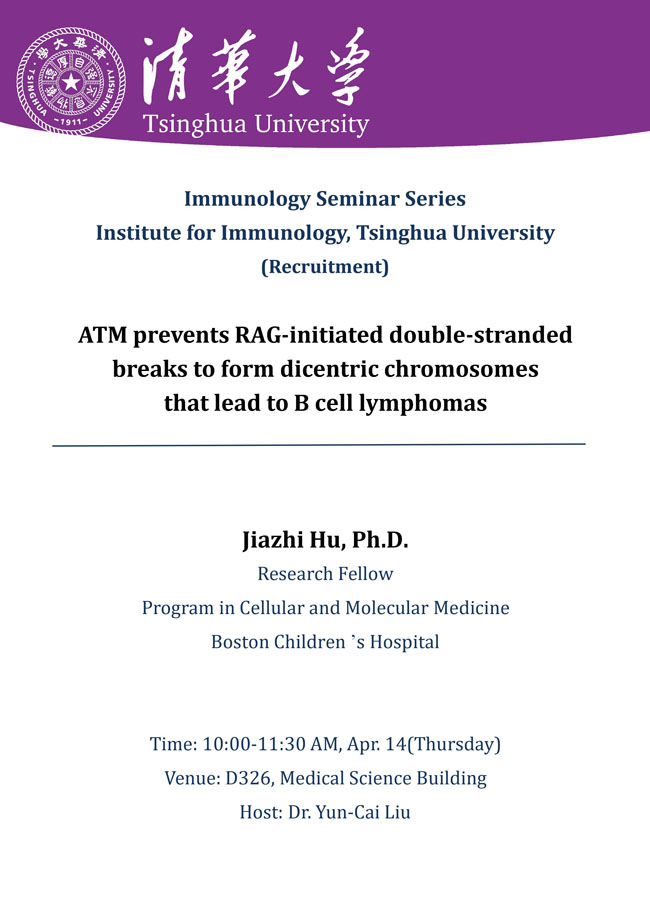ATM prevents RAG-initiated double-stranded breaks to form dicentric chromosomes that lead to B cell lymphomas
Dr. Jiazhi Hu
Research Fellow
Program in Cellular and Molecular Medicine,
Boston Children's Hospital
ATM is the master kinase responding to DNA double-stranded breaks (DSBs). In the absence of ATM, DSBs can persist and form translocations that participate in tumorigenesis. We generated mouse models recurrently developing B cell lymphomas in the absence of ATM, and found all the tumors arose from dicentric chromosomes involving RAG-generated DSBs in the IgH locus. We employed a high-throughput sequencing method to track DSBs in the ATM-deficient cells, and found ATM DNA damage response pathway could tether broken ends from the same DSBs together to facilitate their re-joining, and thus prevented the forming of translocations including dicentric chromosomes. In addition, we found that the RAG endonuclease, which is essential for V(D)J recombination, could generate numerous “off-target” cleavages in the genome; however, this “off-target” activity was restricted by genome-wide topologically-associated domains (TADs). We further proposed a linear-tracking model of RAG to explain the joining profiles of RAG-initiated DSBs.
Time: 10:00-11:30, Apr. 14th(Thursday)
Venue: D326, Medical Science Building
Host: Dr. Yun-Cai Liu

